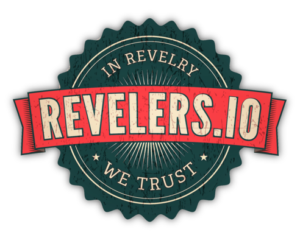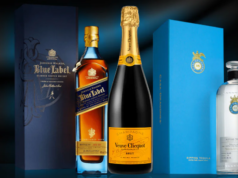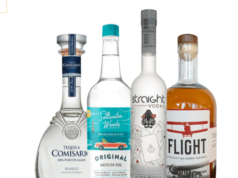Limited to 300 Hand Numbered Bottles.
Thanks to our on line retail partner Bourbon, Scotch and Beer, our 2019 “Perfect Gift Campaign” just got better. BS&B has supplied us with a “Promotional Code” of “FC” which will offer us FREE SHIPPING. Buyers who enter FC in the “Promotional Code” on the “SHOPPING CART” screen should see the freight charge zeroed out. If that doesn’t happen let me know via email.
For our 2nd annual campaign, we’ve got 3 great gift ideas to aid shoppers. Our flagship James FC Hyde Sorgho, our recently added Blended Rye and now our latest and greatest whiskey – our limited edition and luxurious James FC Hyde Sorgho Whiskey BOTTLED IN BOND.
Having barreled our first Sorgho Whiskey in September 2015, we now have 4 year old barrel aged Sorgho Whiskey which can, for the first time, carry the exclusive US Government legal designation of BOTTLED IN BOND. The US Government also requires BOTTLED IN BOND to be proofed at 100 proof. Making this our oldest and highest proof whiskey ever. And to make it even more exclusive and a collectors item, we’re limiting our production to fewer than 300 hand filled and numbered bottles for this holiday season.
So this year we’ve got 3 great gift ideas for our owners / investors for the whiskey lovers on your gift list. With over 1,100 people now owning Epec – James FC Hyde Whiskeys, it’s a perfect opportunity for owners to help drive the success of our brand by gifting our Whiskeys this holiday season. You will both drive sales growth, and promote and enhance awareness of our collection of “Whiskeys like no other”. Truly a win / win / win situation for our brand / our investors / and the recipients of your holiday gifts.
Steve Vanechanos email: [email protected]
Bottled in bond is a label for an American-made distilled beverage that has been aged and bottled according to a set of legal regulations contained in the United States government’s Standards of Identity for Distilled Spirits,[1] as originally laid out in the Bottled-in-Bond Act of 1897. As a reaction to widespread adulteration in American whiskey, the act made the federal government the guarantor of a spirit’s authenticity, gave producers a tax incentive for participating, and helped ensure proper accounting and the eventual collection of the tax that was due. Although the regulations apply to all spirits, most bonded spirits are whiskeys in practice.
To be labeled as bottled-in-bond or bonded, the liquor must be the product of one distillation season (January–June or July–December) by one distiller at one distillery. It must have been aged in a federally bonded warehouse under U.S. government supervision for at least four years and bottled at 100 (U.S.) proof (50% alcohol by volume). The bottled product’s label must identify the distillery where it was distilled and, if different, where it was bottled. Only spirits produced in the United States may be designated as bonded.





